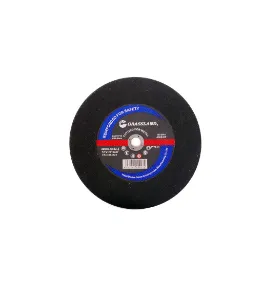The evolution of flexible grinding wheel technology has revolutionized industrial workflows, offering unmatched adaptability across diverse applications. From flexible sanding disc for angle grinder systems to high-performance flexible grinding discs, these tools cater to precision tasks in metalworking, construction, and composite finishing. For wholesale buyers, advancements in material science and competitive flexible grinding wheel price points ensure cost-efficiency without compromising quality. Understanding what are the types of grinding machines compatible with these innovations is key to optimizing bulk procurement strategies.

Flexible Sanding Disc for Angle Grinder: Mastering Contoured Surfaces
The flexible sanding disc for angle grinder stands out in scenarios demanding both agility and precision. Designed to contour seamlessly around curved or irregular surfaces, these discs eliminate the risk of gouging while delivering a uniform finish. Innovations such as multi-layered polyester backing and staggered abrasive grain placement enhance durability, making them ideal for automotive panel repairs or aerospace component finishing. Wholesale buyers benefit from bulk pricing models, especially when sourcing discs compatible with high-RPM angle grinders. Pairing these discs with flexible grinding wheels of varying grits allows businesses to address both rough grinding and fine polishing within a single workflow, reducing tool changeover times and boosting productivity.
Flexible Grinding Disc: Powering Heavy-Duty Material Removal
Engineered for resilience, the modern flexible grinding disc excels in high-pressure environments like foundries and shipyards. Reinforced fiberglass backings and ceramic-aluminum oxide blends ensure these discs withstand aggressive stock removal on stainless steel, cast iron, and hardened alloys. Recent advancements include non-woven abrasives for deburring delicate surfaces and hybrid designs that combine cutting and finishing in one operation. For wholesale suppliers, offering discs tailored to specific types of grinding machines—such as belt grinders for large-scale projects or handheld units for on-site repairs—ensures clients achieve consistent results. Competitive flexible grinding wheel price structures further incentivize bulk orders, particularly for industries like construction and heavy machinery maintenance.
Balancing Cost and Performance in Flexible Grinding Wheel Pricing
The flexible grinding wheel price spectrum now accommodates diverse budgets without sacrificing technological benefits. Innovations like resin-bonded diamond grains and electrostatic coating processes have driven down production costs, enabling wholesale buyers to access premium-grade abrasives at scale. For example, zirconia-alumina flexible grinding discs now offer longer lifespans compared to traditional aluminum oxide variants, translating to fewer replacements and reduced downtime. Bulk customization options—such as grit sequencing (coarse to fine on a single disc) or custom diameters—allow businesses to align purchases with specific types of grinding machines, whether for bench-mounted precision tools or portable grinders used in field repairs.
Optimizing Grinding Machines for Flexible Wheel Compatibility
Understanding what are the types of grinding machines that maximize flexible grinding wheel efficiency is critical for wholesale success. Angle grinders, for instance, leverage the compact design of flexible sanding discs to access tight spaces in welding or automotive repair, while belt grinders utilize wide flexible grinding discs for rapid surface leveling on steel beams or timber. Bench grinders, often equipped with adjustable tool rests, pair seamlessly with fine-grit wheels for sharpening blades or smoothing edges. Portable grinders, favored in maintenance crews, rely on lightweight flexible grinding wheels for on-the-spot repairs without compromising power. Innovations in heat dissipation, such as vented disc designs, ensure these tools operate cooler and longer, even under continuous use—a key selling point for bulk buyers prioritizing equipment longevity.
FAQs about Flexible Grinding Wheel
Can flexible grinding discs replace traditional rigid wheels in metal fabrication?
Yes. Flexible grinding discs offer superior contouring ability, reducing workpiece damage on curved metal surfaces while maintaining aggressive material removal rates.
How do I choose the right grit size for a flexible sanding disc on an angle grinder?
Select the particle size of the flexible sand table according to the different properties of the Angle grinder.
What impacts flexible grinding wheel price in high-volume orders?
Key factors include abrasive material (e.g., ceramic vs. zirconia), disc diameter, and custom bonding agents. Bulk discounts typically apply for orders exceeding 500 units.
Are there flexible grinding wheels for non-metallic materials like stone or composites?
Absolutely. Non-woven nylon flexible grinding wheels with silicon carbide grains are designed for stone polishing or composite trimming without cracking delicate surfaces.
What safety certifications should wholesale suppliers provide for grinding discs?
Look for ISO 9001 compliance and OSHA-approved markings, ensuring discs meet rotational speed and durability standards for industrial types of grinding machines.
Post time:Jun - 10 - 2025

















